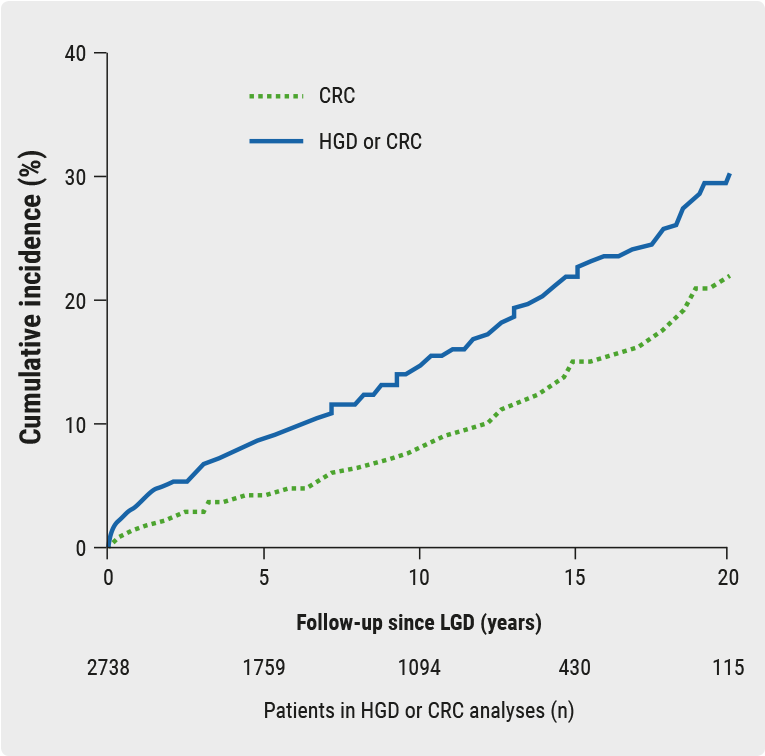Risk of COVID-19
“In general, patients with IBD do not have an increased risk of contracting COVID-19,” said Prof. Ng. The incidence of COVID-19 among patients with IBD is relatively low (0.3%) compared with the general population (0.2–4.0%) [1,2]. In addition, it has been shown that the use of anti-TNFs or thiopurines does not lead to an increased risk of contracting COVID-19 [3]. Regarding COVID-19 outcomes, it has been demonstrated that patients with IBD who are older, male, have comorbidities, or higher disease activity, are more likely to experience worse outcomes, such as hospitalisation, ventilation, or death [4].
IBD medication and COVID-19
“The use of corticosteroids has consistently been associated with an increased risk of worse COVID-19 disease outcomes in patients with IBD,” continued Prof Ng. “In contrast, biologic agents, immunomodulators, and mesalamines were not related to worse COVID-19 outcomes.” Therefore, IBD medications do not need to be discontinued or reduced during the current pandemic, except for corticosteroids, which should be reduced whenever possible.
Vaccines and IBD
“The current evidence suggests that COVID-19 vaccines are not associated with an increase in IBD flares or other adverse events. Also, in patients with IBD, full vaccination, but not partial vaccination, resulted in a 69% reduced hazard of SARS-CoV-2 infection compared with unvaccinated patients with IBD. Therefore, patients with IBD should be vaccinated at the earliest opportunity to do so. In addition, patients who are treated with corticosteroids, anti-TNF monotherapy or combination therapy, or tofacitinib may have a compromised vaccine response. This could result in an increased risk for breakthrough SARS-CoV-2 infections. In general, a third dose is recommended in patients with IBD, especially since the arrival of the highly contagious Omicron variant [5]. Even a fourth vaccine dose might be warranted in certain patients. However, more studies need to be conducted to establish the value of a fourth COVID vaccination in patients with IBD.”
- Ng S, et al. Lessons from the COVID pandemic for IBD management. SCI40, ECCO 2022, 16–19 February.
- Aziz M, et al. Inflam Bowel Dis. 2020;26(10):e132–e133.
- Khan N, et al. Gastroenterology. 2020;159(4):1592–1594.
- Singh S, et al. Gastroenterology. 2020;159(4):1575–1578.
- Alexander J, et al. COVID-19 vaccine-induced antibody responses are impaired in Inflammatory Bowel Disease patients treated with infliximab, ustekinumab or tofacitinib, but not thiopurines or vedolizumab. OP21, ECCO 2022, 16–19 February.
Copyright ©2022 Medicom Medical Publishers
Posted on
Previous Article
« AI model distinguishes between histologic activity and remission in ulcerative colitis Next Article
Letter from the Editor »
« AI model distinguishes between histologic activity and remission in ulcerative colitis Next Article
Letter from the Editor »
Table of Contents: ECCO 2022
Featured articles
Upadacitinib maintenance therapy delivers sustained improvements in active ulcerative colitis
Novel Treatment Modalities
Guselkumab shows encouraging safety and efficacy in ulcerative colitis
Guselkumab maintenance therapy achieved high efficacy rates in Crohn’s disease
Mirikizumab efficacious for active ulcerative colitis
Risankizumab more efficacious in colonic than in ileal Crohn’s disease
Guselkumab plus golimumab promising combination for ulcerative colitis
Combined endpoint may support personalised medicine in ulcerative colitis
Filgotinib seems promising for perianal fistulising Crohn’s disease
Upadacitinib maintenance therapy delivers sustained improvements in active ulcerative colitis
Upadacitinib counters extraintestinal manifestations in ulcerative colitis
Deucravacitinib does not meet primary endpoint for ulcerative colitis
Head-to-Head Comparisons
Anti-TNFs versus vedolizumab and ustekinumab in Crohn’s disease
Upadacitinib appears to be an efficacious therapy for moderately-to-severely ulcerative colitis
Subcutaneous infliximab versus subcutaneous vedolizumab in IBD
Vedolizumab outperforms anti-TNF in biologic-naïve ulcerative colitis
Short-Term and Long-Term Treatment Results
Ozanimod treatment shows maintained response in ulcerative colitis
Stopping infliximab but not antimetabolites leads to more relapses in Crohn’s disease
Vedolizumab first approved therapy for chronic pouchitis
VEDOKIDS: Vedolizumab seems effective in paediatric IBD
Primary endpoint of 5-hydroxytryptophan for fatigue in IBD not met
Specific Therapeutic Strategies
Positive outcomes with therapeutic drug monitoring during infliximab maintenance therapy
Segmental colectomy beneficial over total colectomy in Chrohn’s disease
Modified 2-stage ileal pouch-anal anastomosis versus 3-stage alternative
Similar results for different corticosteroid tapering protocols in UC
Miscellaneous Topics
Lessons from the COVID-19 pandemic for IBD management
AI model distinguishes between histologic activity and remission in ulcerative colitis
Multi-Omic and dietary analysis of Crohn’s disease identifies pathogenetic factors
Novel classification system for perianal fistulising Crohn’s disease
Vaccination tool associated with improved vaccination coverage in IBD
Comparable safety profiles of biological therapies in elderly patients with IBD
Early biologic therapy induces larger effect than delayed treatment in Crohn’s disease
RESTORE-UC: No better outcomes with FMT superdonors than with autologous stools
Related Articles
November 2, 2020
Filgotinib effective as maintenance treatment for ulcerative colitis

© 2024 Medicom Medical Publishers. All rights reserved. Terms and Conditions | Privacy Policy
HEAD OFFICE
Laarderhoogtweg 25
1101 EB Amsterdam
The Netherlands
T: +31 85 4012 560
E: publishers@medicom-publishers.com

